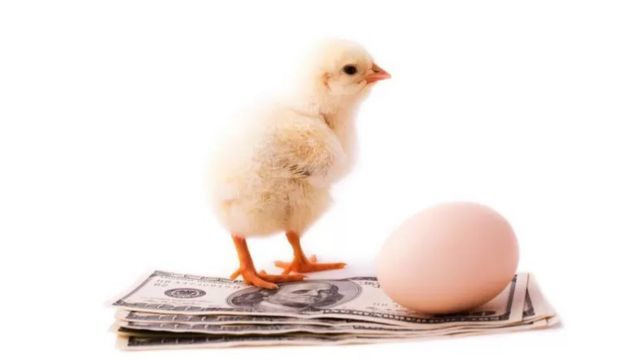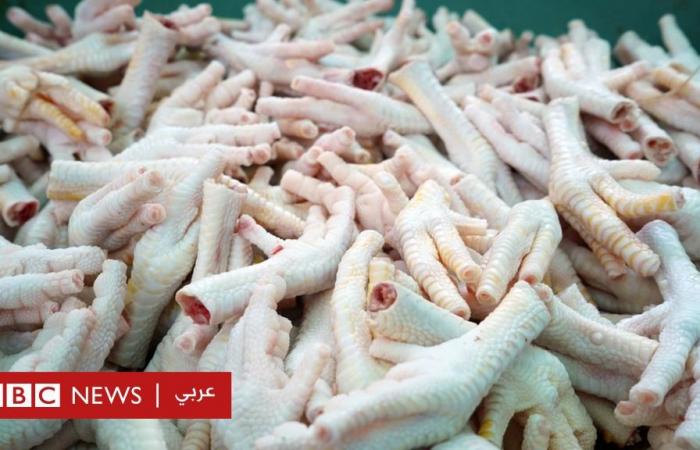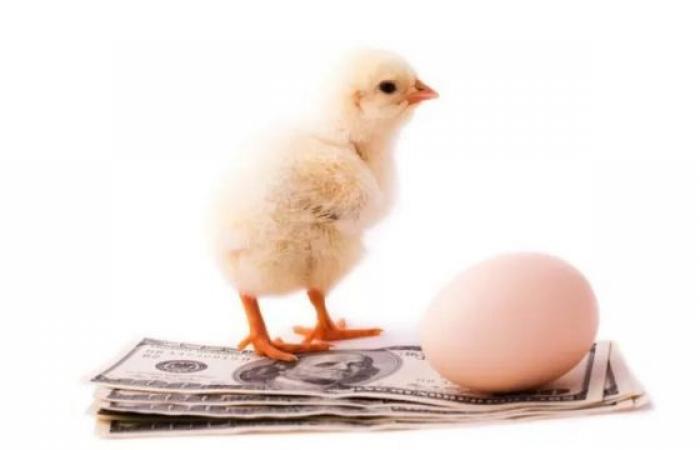4 minutes ago
image copyright GettyImages
The National Institute of Nutrition in Egypt published a post on its Facebook site, in which it talks about several “food alternatives rich in protein and able to provide the budget,” including chicken legs.
Egyptian newspapers and news sites also published reports talking about the “benefits of chicken legs”, which caused a sensation on social media, and made many wonder if it was a media campaign aimed at persuading citizens to eat cheap food instead of complaining about the high price of meat. and poultry.
The institute said chicken legs are “rich in protein, vitamins and minerals needed for skin tissue repair and muscle growth”. He also indicated that it contains collagen, which is necessary to regenerate skin cells, delay signs of aging, and maintain healthy hair and nails.
However, the institute published a picture of Portuguese star Cristiano Ronaldo smiling at the camera and in front of him a plate of “chicken legs”. However, by researching the origin of these images, it turned out that the food in the original image was regular chicken strips. The institute deleted the photo at a later time, after the pioneers of social networking sites took up these photos.
Researcher Ammar Ali Hassan published a tweet on Twitter, in which he said: “After destroying the poultry industry, in which Egypt was distinguished, they are now announcing the benefits of chicken legs. It is the last banner hanging over a colorful wall that is about to break down for what they call the “New Republic.”
However, the head of the internal trade sector at the Ministry of Supply, Abdel Moneim Khalil, said in a televised interview with a local channel that chicken legs are among the valuable dishes that Egypt exports to China through more than eight companies.
The head of the Farmers Syndicate in Egypt, Hussein Abu Saddam, criticized the call to eat chicken legs as one of the solutions after the price of a kilogram of chicken increased.
He pointed out that the price of a kilo of poultry these days is 47 pounds, while the price of a kilo of lentils reaches 50 pounds, and a kilo of tilapia fish is 50 pounds, which means that the price of a kilo of poultry is cheaper, adding that the global crisis affected prices.
image copyright True Egypt website
The “Sahih Egypt” website published this picture, which shows the difference between the fabricated dish and the original dish that Cristiano Ronaldo was eating.
Some social media users referred to the novel “Utopia” written by the late Ahmed Khaled Tawfik in 2008, in which he predicted that the price of the dollar in Egypt would reach 30 pounds, and that chicken parts that were thrown in the garbage such as legs and wings would become popular foods among Citizens.
The poultry industry in Egypt has faced a major crisis recently, the latest of which was due to the detention of feed in the ports due to the foreign currency shortage crisis and the complexities of customs release, amid a government move to find solutions to these crises that threaten this industry, which employs more than three million workers.
According to an official report issued by the Audio-Visual Information Center of the Egyptian Ministry of Agriculture and Land Reclamation, the volume of investments in the poultry industry in Egypt amounts to about 100 billion Egyptian pounds ($4.05 billion), and the total number of poultry establishments is about 38,000, including farms, feed factories, slaughterhouses, and drug outlets. veterinary and vaccines.
About two months ago, a number of poultry breeders in Egypt executed chicks by suffocation by placing them inside large plastic bags.
The deputy head of the Poultry Producers Union in Egypt, Tharwat Al-Zeini, went out to announce in a televised intervention that “poultry producers resort to culling thousands of chicks due to the scarcity of fodder and its high prices in the markets.”

image copyright GettyImages
The poultry industry in Egypt faced a major crisis recently
Al-Zaini called at that time to expedite the release of fodder and raw materials that had accumulated two months ago in Egyptian ports. He also warned at the time that the continuation of the crisis “will cause an insane rise in the prices of poultry and eggs, which the Egyptian citizen will not bear.”
On Sunday, the Egyptian government said that $300 million worth of goods held at ports, including food commodities such as meat, fodder, oils and legumes, were released during the past Wednesday and Thursday.
Prime Minister Mostafa Madbouly said that the goods detained in the ports will be released sequentially, explaining that these goods were arranged according to priority, in coordination with the Central Bank to provide the necessary funding from dollars, and Madbouly stressed that food commodities and production requirements are among the highest priorities.
Quantities of imported goods at Egyptian customs had accumulated during the past months due to the lack of dollar liquidity to enter the Egyptian market.
About two months ago, poultry breeders published video clips of the culling of thousands of young chicks because there was not enough fodder to feed them.
Egypt is suffering from a major economic crisis and has recently reached an agreement with the International Monetary Fund to provide Cairo with three billion dollars from the fund, in addition to another package that includes one billion dollars from the Fund’s Sustainability and Resilience Fund and five billion dollars from development partner countries. Which means a total of nine billion dollars in aid.
Egypt will employ these sums to face the financial hardship that the country’s economy is suffering from, as a result of the repercussions of the Corona pandemic and the Russian war on Ukraine.
One of the most prominent features of the economic crisis is the existence of a large deficit in the general budget of the Egyptian state, the need to pay debt installments and interest, in addition to the high bill for commodity imports, as Egypt suffers from a large deficit in the trade balance, and the high rate of inflation.
The Egyptian government hopes that economic measures, monetary reforms, and an IMF loan will reduce the inflation rate, ease financial pressure on low- and middle-income families, and reduce Egypt’s total debt. Government figures indicate that about 30 percent of Egypt’s population of 104 million suffers from poverty.
Tags: Chicken legs Egypt raise wave controversy ridicule light high prices meat poultry




